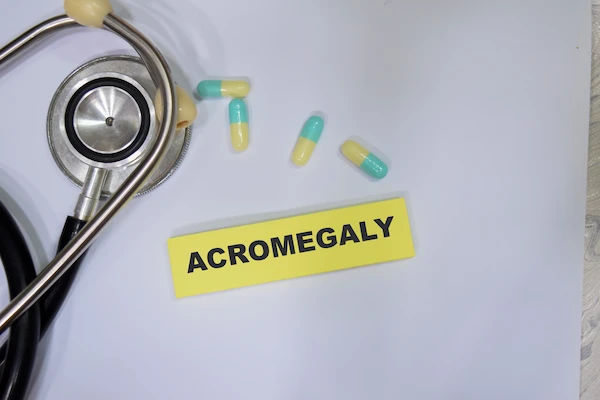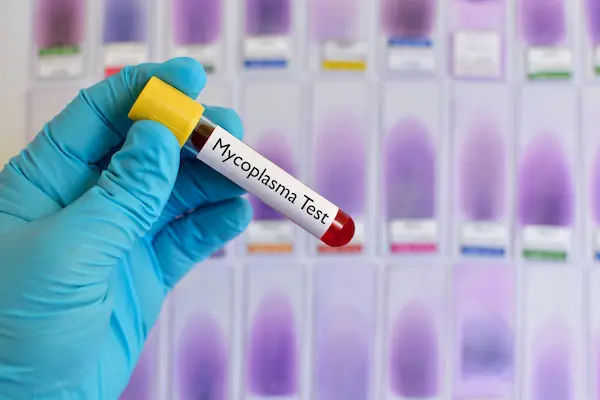Causes and Concerns of Green Stool
Discover the possible causes of green stool, from diet and digestive changes to infections and medical conditions. Learn when green stool may indicate a health concern.

Written by Dr. Rohinipriyanka Pondugula
Reviewed by Dr. Shaik Abdul Kalam MD (Physician)
Last updated on 24th Aug, 2025

Noticing green stool can be surprising and sometimes worrisome. While it’s usually harmless and temporary, it can occasionally indicate an underlying health issue. In this article, we’ll explore the common causes of green stool, when you should be concerned, and how to manage it.
What Causes Green Stool?
Green stool can happen for several reasons, most of which are not serious. Here are the most common causes:
1. Diet
Certain foods and drinks can turn your stool green, including:
- Leafy greens (spinach, kale, lettuce)
- Green food coloring (found in candies, ice creams, or drinks)
- Iron supplements (can sometimes darken stool to green or black)
- Blue or purple foods (blueberries, grapes, or artificial dyes can mix with digestive juices to produce green stool)
2. Rapid Digestion (Bile-Related Causes)
Bile, a digestive fluid produced by the liver, is naturally greenish-yellow. As food moves through your intestines, bile
helps break it down, turning stool brown. However, if food moves too quickly (like in diarrhea), bile doesn’t have
enough time to break down completely, leading to green stool.
3. Infections or Digestive Issues
- Bacterial or viral infections (like Salmonella or Giardia) can speed up digestion, causing green diarrhea.
- Stomach flu (gastroenteritis) may lead to greenish stools due to rapid bowel movements.
- Irritable Bowel Syndrome (IBS) or Crohn’s disease can sometimes alter stool color.
4. Medications and Supplements
- Antibiotics can disrupt gut bacteria, sometimes leading to green stool.
- Iron supplements may cause dark green or black stool.
- Laxatives can speed up digestion, resulting in greenish stools.
5. Underlying Medical Conditions
While rare, green stool can sometimes indicate:
- Celiac disease (an autoimmune reaction to gluten)
- Bile duct obstruction (blockage preventing bile from reaching the intestines)
- Inflammatory bowel disease (IBD)
Consult a Top Gastroenterologist
When Should You Be Concerned?
Most cases of green stool are temporary and harmless. However, consult a doctor if you notice:
- Persistent green stool (lasting more than a few days without dietary causes)
- Severe diarrhea or dehydration (especially with fever or vomiting)
- Blood in stool (red or black stools)
- Unexplained weight loss or abdominal pain
- Greasy, foul-smelling stools (could indicate malabsorption issues)
Tips for Managing Green Stool
If your green stool is diet-related or due to minor digestive issues, try these steps:
1. Adjust Your Diet
- Reduce intake of green-colored foods or artificial dyes.
- Eat more fiber (whole grains, fruits, vegetables) to regulate digestion.
- Stay hydrated to prevent diarrhea-related green stool.
2. Monitor Medications
- If you suspect a medication is causing green stool, check with your doctor before stopping it.
3. Probiotics for Gut Health
- Yogurt, kefir, or probiotic supplements can help balance gut bacteria, especially after antibiotics.
4. Seek Medical Advice if Needed
- If symptoms persist or worsen, consult a doctor for further evaluation.
When to See a Doctor?
If green stool is accompanied by:
- Severe abdominal pain
- Blood in stool
- High fever or prolonged diarrhea
- Unexplained weight loss
It’s best to get a professional opinion. You can easily book a consultation with a gastroenterologist through Apollo 24|7 for expert advice and diagnostic tests if needed.
Final Thoughts
Green stool is usually nothing to worry about, especially if it happens occasionally after eating certain foods. However, if it persists or comes with other concerning symptoms, don’t hesitate to seek medical help. Staying aware of your digestive health and making small dietary adjustments can often resolve the issue.
Consult a Top Gastroenterologist
Consult a Top Gastroenterologist

Dr Bhargav Vuppumalla
General Physician/ Internal Medicine Specialist
5 Years • MBBS MD GENERAL MEDICINE
Bengaluru
Apollo Medical Center, Marathahalli, Bengaluru

Dr Harish K C
Gastroenterology/gi Medicine Specialist
15 Years • MBBS MD DM MRCP(UK) (SCE-Gastroenterology and Hepatology)
Bangalore
Manipal Hospital, Bangalore

Dr. Paramesh K N
Gastroenterology/gi Medicine Specialist
16 Years • MBBS, MS ( General Surgery), DNB ( Surgical Gastroenterology)
Hyderabad
Sprint Diagnostics Centre, Hyderabad

Dr. Shivaraj Afzalpurkar
Gastroenterology/gi Medicine Specialist
13 Years • MBBS, MD General medicine (Gold medalist), DrNB (Gastroenterology), MNAMS
Bengaluru
Apollo Clinic, JP nagar, Bengaluru

Dr. Ankit Vijay Agarwal
Gastroenterology/gi Medicine Specialist
14 Years • MBBS(Osmania), DNB(Internal Medicine ), DM ( Osmania) Consultant Gastroenterologist, Hepatologist and Advanced Therapeutic Endoscopist
Hyderabad
Apollo Hospitals Jubilee Hills, Hyderabad
Consult a Top Gastroenterologist

Dr Bhargav Vuppumalla
General Physician/ Internal Medicine Specialist
5 Years • MBBS MD GENERAL MEDICINE
Bengaluru
Apollo Medical Center, Marathahalli, Bengaluru

Dr Harish K C
Gastroenterology/gi Medicine Specialist
15 Years • MBBS MD DM MRCP(UK) (SCE-Gastroenterology and Hepatology)
Bangalore
Manipal Hospital, Bangalore

Dr. Paramesh K N
Gastroenterology/gi Medicine Specialist
16 Years • MBBS, MS ( General Surgery), DNB ( Surgical Gastroenterology)
Hyderabad
Sprint Diagnostics Centre, Hyderabad

Dr. Shivaraj Afzalpurkar
Gastroenterology/gi Medicine Specialist
13 Years • MBBS, MD General medicine (Gold medalist), DrNB (Gastroenterology), MNAMS
Bengaluru
Apollo Clinic, JP nagar, Bengaluru

Dr. Ankit Vijay Agarwal
Gastroenterology/gi Medicine Specialist
14 Years • MBBS(Osmania), DNB(Internal Medicine ), DM ( Osmania) Consultant Gastroenterologist, Hepatologist and Advanced Therapeutic Endoscopist
Hyderabad
Apollo Hospitals Jubilee Hills, Hyderabad

.webp)


